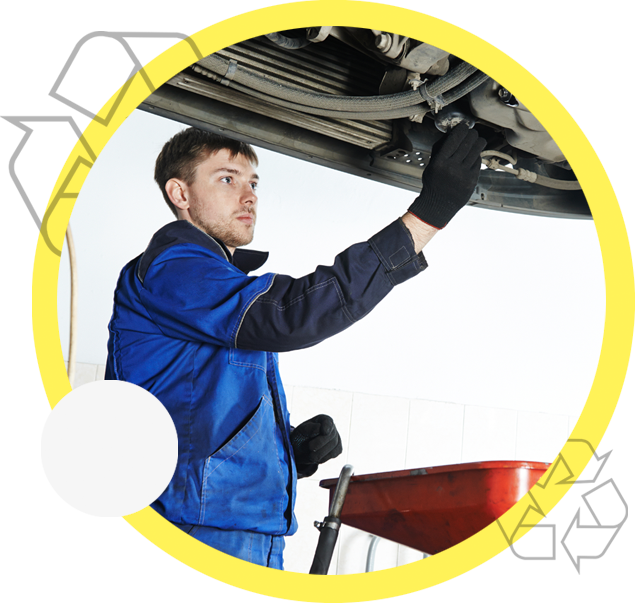Frequently Asked Questions
What happens to my used oil after UES collects it?
Once the used oil is collected, it is tested to certify that it is “non-hazardous” and meets the criteria for “on-specification” used oil as outlined by EPA (Environmental Protection Agency) Regulations 40 CFR Part 279. Primarily, the used oil will be re-refined and recycled into new base oil, where it will be formulated and blended into new lubricant oils, hydraulic oils and engine oils. Secondarily, if the used oil cannot be re-refined, it will be recycled as a fuel oil for industrial plant users as an alternative to virgin produced fuels such as #2, #3, #4 or #5 oil.
What is the benefit of re-refining used oil?
Re-refining used oil is the upcycling of a non-renewable resource. Most new oils are produced through the refining of crude oils, much of which is purchased from other countries. Re-refining of used oil does not require new natural non-renewable resources because used oil can be re-refined and recycled endless times. It never loses its base oil qualities. The re-refining process will remove and restore the oil into its “virgin” base oil condition ready for reformulating with additive packages to produce the highest quality recycled oils on the market.
Who is UES and why should I use UES as my service provider?
Over the past two years our new ownership group, Avista AG has invested the resources into UES to foster a complete transformation. Avista is the biggest used oil collector in Europe and operates two re-refineries (one in Germany and one in Denmark); it is also the biggest re-refiner in Europe. We made the decision as a company to invest in the highest quality re-refining process in the recycled oil industry. We have constructed a 30 million gallon per year refinery in Peachtree City, Georgia. We have invested substantial capital into a new fleet of collection trucks and processing equipment. Last October, UES and Avista completed the purchase of a regional used oil collection company to further strengthen our company’s position in the southeast market.
UES understands it is a privilege to have you as a customer. We adhere to the highest industry standards and government regulations. We strive to improve daily and provide the highest level of customer service in the industry. If you have a complaint or concern we will address it swiftly and to the best of our ability to your satisfaction. UES employs a highly trained and dedicated service staff that strives to exceed our customer expectations.


